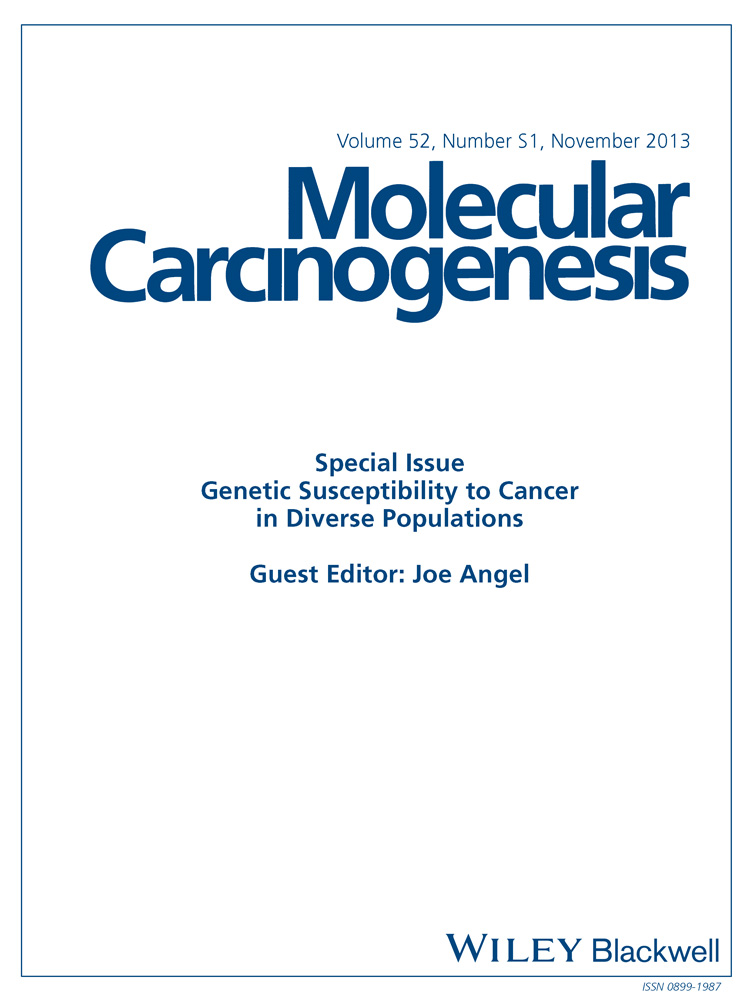Interaction of polymorphisms in mitotic regulator genes with cigarette smoking and pancreatic cancer risk
Abstract
Mitotic regulator genes have been associated with several cancers, however little is known about their possible association with pancreatic cancer. Smoking and family history are the strongest risk factors for this highly fatal disease. The main purpose of this study was to determine if polymorphisms of mitotic regulator genes are associated with pancreatic cancer and whether they modify the association between cigarette smoking and pancreatic cancer risk. A population-based case-control study was conducted in Ontario with 455 pathology-confirmed pancreatic cancer cases and 893 controls. Cigarette smoking history was collected using questionnaires and DNA obtained from blood samples. Genotypes were determined by mass-spectrometry. Odds ratio estimates were obtained using multivariate logistic regression. Interactions between genetic variant and smoking were assessed using stratified analyses and the likelihood ratio statistic (significance P < 0.05). Variants of MCPH1, FYN, APC, PRKCA, NIN, TopBP1, RIPK1, and SNW1 were not independently associated with pancreatic cancer risk. A significant interaction was observed between pack-years and MCPH1-2550-C > T (P = 0.02). Compared to never smokers, individuals with 10–27 pack-years and MCPH1-2550-CC genotype were at increased risk for pancreatic cancer (MVOR = 2.49, 95% confidence interval [95% CI]: 1.55, 4.00) as were those with >27 pack-years and MCPH1-2550-TC genotype (MVOR = 2.42, 95% CI: 1.45, 4.05). A significant interaction was observed between smoking status and TopBP1-3257-A > G (P = 0.04) using a dominant model. Current smokers with the TopBP1-3257 A allele were at increased risk for pancreatic cancer (MVOR = 2.55, 95% CI: 1.77, 3.67). MCPH1-2550-C > T and TopBP1-3257-A > G modify the association between smoking and pancreatic cancer. These findings provide insights into the potential molecular mechanisms behind smoking-associated pancreatic cancer. © 2013 Wiley Periodicals, Inc.




